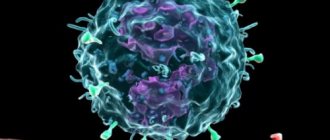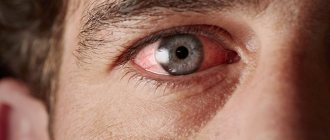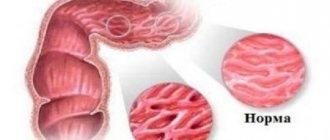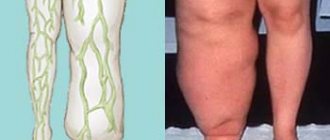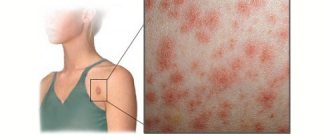Mature neutrophils in the human body are the fundamental basis of the immune system. Why are neutrophils elevated? What diseases does this reaction of the body indicate? Treatment options? Each of these questions is important for a person. Information literacy and a conscious understanding of the essence of the issue will help everyone begin treatment on time.
Neutrophils are cells that are part of the leukocyte formula and are the first to respond to an inflammatory or infectious process. As soon as the bone marrow receives a signal that an infection has penetrated inside, neutrophils are released from there in increased numbers to help the body cope with the disease on its own. For many patients, a complete blood count and determination of the percentage of neutrophils is an option for determining the presence of a serious disease.
Mechanism of development of the disorder
Conventionally, all pathogenetic factors can be divided into several groups.
- Autoimmune inflammation. They occur quite often. Various disorders such as systemic lupus erythematosus and rheumatoid arthritis are possible.
In this case, a false reaction occurs when the immune system begins to attack its own cells. This is dangerous and leads to a rapid increase in neutrophil counts and more.
- Infections. They are even more common. Pathological processes are heterogeneous in nature. If neutrophils in the blood are elevated, this means that viral and bacterial lesions and fungal disorders may be present.
There are plenty of options. Differential diagnosis is necessary. Only in this case will it be possible to quickly and effectively correct neutrophilia (another name for the increased number of leukocytes in this group).
- Intoxication of the body. Various kinds. Neutrophils in the blood are elevated due to poisoning with various poisons or overdose of hormonal drugs. There are also several options. It is necessary to approach the issue carefully. The therapist decides. If necessary, a toxicologist is involved.
There is a fourth mechanism. But it is not pathological. In this case, natural factors come into play. For example, improper, abundant nutrition. This is more a matter of preparing for a blood test.
An increase in the content of neutrophils in 40-50% of cases is a pathological condition.
Further differentiation of diagnoses must be made by a specialized specialist. It also distinguishes normality from pathology.
How should a patient react to the results of a blood test?
If neutrophils in the blood are elevated, then you must follow these recommendations:
- Visit a therapist immediately. What should you tell your doctor? First of all, talk about the symptoms and general condition of the body, point out the changes that have occurred recently.
- Re-test. What does it mean? The doctor will definitely recommend taking a general test again and paying special attention to preparing for it.
- After confirming the results, it is necessary to additionally undergo diagnostics of the organ or inflammatory processes that can lead to such manifestations.
- Having established an accurate diagnosis, the doctor will first of all draw up a treatment regimen that will eliminate the disease that is the cause of the malfunction in the leukocyte formula.
Treatment options for each patient will be selected individually.
For example:
- in case of drug poisoning or vitamin deficiency, the doctor will prescribe rehabilitation measures, in which he will reduce the dose of the drug or cancel it completely, and select a vitamin complex;
- if the cause of the increase is psycho-emotional experiences, then the doctor may recommend a course of sedatives and psychotherapeutic treatment. To successfully and quickly get rid of clinical manifestations, you need to completely eliminate the irritating factor from your life;
- if the cause is sudden and systematic changes in temperature conditions, then it is necessary to temporarily limit the impact of this negative factor. In this case, it is possible to boost the immune system with proper rest and bed rest for several days;
- if the cause is infectious, fungal or viral diseases, then antibiotics, anti-inflammatory drugs, and drugs that help the digestive system cope with food are necessarily recommended. In severe cases, they may resort to a leukapheresis procedure, which helps cleanse the blood of excess white cells.
Reasons for the increase
There are more than 20 factors in the development of the disorder. Not all of them are pathogenic. It’s worth starting with the actual pathological aspects.
Poisoning
Various intoxications of the body. This may include damage from mercury, lead, non-metal vapors, natural insect poisons and others.
This also occurs with drug overdose.
Prolonged inhalation of carbon dioxide can cause a temporary increase in indicators. This is quite a diverse group.
Symptoms depend on the type of poison. There must be a system of manifestations:
- Headache. Localized in the frontal or parietal areas. May be spread throughout the skull.
- Vertigo. When the world literally spins before your eyes.
- Coordination problems.
- Change in blood fluidity. It becomes too thin or too thick (much less often).
- Drowsiness and weakness.
- Nausea.
- Vomit.
Specific manifestations of the pathological process are possible and even probable, in the form of blue gums and others.
Treatment. It is carried out in a hospital or on an outpatient basis. Depending on the severity of the disorder. Specific antidotes are used against a specific poison.
Gastric lavage is possible. Cleansing enemas. Everything is determined by the way in which toxins entered the body. Anticoagulants or, conversely, agents for hemostasis are also prescribed. If blood flow is impaired.
The rehabilitation period lasts about 2-3 months. At this time, the patient must follow the regimen prescribed by the doctor.
Taking certain medications
The reason for increased neutrophils in a blood test may be the use of glucocorticoids and other hormonal medications. The higher the concentration of active substances, the higher the likelihood of an increase in the concentration of white bodies. But only at an early stage of admission.
With long-term, systematic use, the opposite is true. Due to the weakening of the body's defenses, suppression of local and general immunity, the number of neutrophils decreases.
During the initial use of drugs, a group of symptoms develops:
- Regular headaches.
- Blood pressure surges.
- Discomfort in the liver and abdomen in general.
- Nausea.
- Weakness.
- Tachycardia.
The treatment is simple. It is necessary to discontinue glucocorticoids or replace them with other drugs. You cannot make such decisions on your own. You should consult your healthcare professional.
Infections
Septic processes are diverse in nature. Especially often, a disorder, an overestimation of the concentration of neutrophils, is observed with several deviations:
- Angina.
- Pneumonia. It's pneumonia.
- Bronchitis.
- Meningitis.
- Cholecystitis.
Also other pathological processes up to tuberculosis.
Symptoms depend on the underlying diagnosis. If you average the possible clinical picture, you will definitely find the following manifestations:
- Headache.
- Weakness.
- Nausea.
- Vomit.
- Increase in body temperature.
- Possible heaviness in the abdomen.
- Cough.
- Runny nose and other respiratory symptoms.
- Sometimes there is discomfort in the oropharynx.
Immediate treatment is required. It depends on the type of disease. For example, for microbial lesions, antibiotics are prescribed. For viral ones - antiviral and so on.
Antipyretics are used to reduce fever. Be sure to take non-steroidal anti-inflammatory drugs. Next the doctor decides.
The absolute number of neutrophils is increased temporarily until the underlying disease passes. The dynamics of formed cells changes smoothly.
They return completely to normal after 2-3 weeks from the end of the pathological process. That is, residual effects persist for some time.
Autoimmune lesions
Conditions in which the body's defenses begin to attack its own tissues and cells. Paradoxically, they do not cover the body, but destroy it. Which should not be normal.
There are many diagnoses that provoke the growth of neutrophils. If neutrophils are elevated in an adult, this may mean rheumatoid arthritis, thyroiditis, and systemic lupus erythematosus. And much more. The ICD has a whole section dedicated to it.
Symptoms directly depend on the specific pathological process. For example, against the background of rheumatoid arthritis, the patient experiences a range of unpleasant sensations.
Present:
- Joint pain.
- Increase in body temperature.
- Discomfort in the limbs.
- Swelling, redness of anatomical structures.
Treatment is carried out under the supervision of a rheumatologist and, if necessary, an orthopedist. They work in tandem to achieve maximum effect.
Three types of drugs are prescribed. Gradually.
- The first line is non-steroidal anti-inflammatory drugs. Ibuprofen, Nurofen, Ketorol, Nise and the like. There are dozens of titles.
- Second-line drugs are glucocorticoids. If the first ones did not give the desired effect. Prednisolone as the gold standard. Then everything depends on the course and severity of the pathological process.
It is possible that more powerful medications will be needed. For example, Dexamethasone, which is several times more active than Prednisolone.
If these drugs do not provide full effect, immunosuppressants are indicated. The same medications that slow down the production of neutrophils. And in general they inhibit the body’s defenses.
The question of choice falls on the shoulders of the doctor. Treatment cannot be prescribed thoughtlessly.
Gangrene
Acute necrotic process. With it, tissues gradually or rapidly die. Typically affects the lower extremities.
This is a natural result of obliterating atherosclerosis or infection at the local level.
Gangrene of the hands occurs, but this is rather the “prerogative” of drug addicts who abuse heroin and homemade drugs.
Symptoms vary depending on the stage.
Always present:
- Changes in skin tone at the local level.
- Pain in the affected limb.
- Increase in body temperature. Up to significant marks. Over 38-39 degrees Celsius.
To deal with gangrene, there is only one way. Amputation of the affected limb. And the sooner the better. Because the process tends to go further and spread rapidly.
Treatment takes place in a specialized hospital. In surgery. Rehabilitation lasts from several months to a year. Depends on the degree of trauma of the therapy.
Blood poisoning
Neutrophils in the blood may be elevated due to sepsis. This is an extremely dangerous condition. The development of a generalized inflammatory process is typical for it.
Viruses and bacteria begin to multiply freely and use the human body’s own resources. To cope with the pathological process, it is necessary to urgently hospitalize the patient in a hospital.
With sepsis, neutrophils are at high levels, literally going off scale, and other symptoms of the disorder are present:
- Pronounced increase in temperature. In shock and similar conditions, the thermometer readings drop.
- Muscle pain.
- Depression of consciousness, breathing, cardiac activity.
- Severe cramps.
Treatment. Loading doses of broad-spectrum antibiotics are prescribed. This is not a guarantee of recovery, but still there is no other way out.
Anti-inflammatory drugs of non-steroidal origin are used. They are supplemented with glucocorticoids.
Infusion therapy is required. Solutions of magnesium sulfate and sodium chloride are administered. Also glucose to nourish the body.
Positive dynamics in sepsis are extremely slow. Therefore, one cannot count on a rapid decrease in neutrophils. You need to be patient. Tests are taken every few days, or even more often.
Anemia
Various types of pathology. The amount of oxygen that reaches the tissues decreases. Hence the pronounced problems with cellular respiration.
An increase in neutrophils during anemia is not always possible, only if a secondary infectious process is associated.
As for symptoms, they depend on the specific form of the disease. For example, with the iron deficiency type there are:
- The desire to eat inedible things.
- Disturbances in the condition of nails and hair.
- Prolonged bleeding.
- Well-being disorders such as weakness, drowsiness.
Recovery is carried out in a hospital. It is necessary to start treatment as quickly as possible so as not to provoke ischemic processes. Use iron supplements, vitamins B9, B12.
Burns
Massive lesions in particular. In this condition, a huge amount of protein is released into the blood. The body perceives it as a foreign substance and activates the immune system.
This only worsens the patient's general condition. To cope with the pathological process, special measures are prescribed.
Ointments and solutions are needed for antiseptic treatment of the integument. Skin grafting will also be required to cover the wound surfaces.
Symptoms depend on the area of affected tissue. Typically, the following manifestations are present:
- Intense pain.
- Heart rhythm disturbances.
- Breathing disorders.
If nothing is done, the patient will fall into a state of shock, especially with massive burns to the body.
Acute ischemic processes
Heart attacks, to put it simply. But in the broad sense of the word. An increase in neutrophils in the blood means, for example, stroke, coronary insufficiency, poor blood circulation in the lung and other disorders.
Attention:
An increase in the concentration of neutrophil cells always accompanies these deviations. Why this is so is not known for certain. There are versions.
Symptoms depend on the specific pathological condition.
For example:
- Chest pain.
- Discomfort in the head.
- Focal neurological disorders.
- Respiratory and cardiac disorders.
Treatment is even more difficult. Because first you need to verify, confirm the diagnosis. There is minimal time for this.
Then a special correction is carried out. Cerebrovascular nootropics are prescribed for brain damage.
Cardioprotectors to cover the heart: Mildronate, Riboxin and similar. The patient is kept in the hospital throughout the therapy to provide the necessary care.
Parasitic infestations
Just like inflammation provokes pathological changes in the body. The reason is that foreign organisms are also perceived as foreign and harmful structures. The immune system is activated again to repel the attack.
Neutrophils are the first to fight. And there is a direct relationship. The more intense the invasion, the worse the excess concentration of formed granulocyte cells. Not only the named structures increase, but also eosinophils. This is a rather specific sign of helminthic infection.
Symptoms are also typical:
- Disturbances in the process of defecation.
- Dyspeptic disorders.
- Abnormally thin.
- Stomach ache.
But the situation is not always so obvious. Parasitic lesions can affect the lungs, liver, even the brain. Therefore, a thorough diagnosis is necessary.
Treatment depends on the specific condition. Antiparasitic drugs are prescribed. If the helminth is located in a difficult location, surgery is indicated.
Cancer
An oncological process in which the tumor is already disintegrating. The body is forced to dispose of cellular, malignant waste.
The body sends neutrophils to cope. This is the main cleaning method. The more intense the tumor process, the higher the concentration of formed cells.
Symptoms of oncology depend on the location, size and type of neoplasia. Therefore, anything concrete can be said only after diagnosis.
Regarding treatment, the standard triad of methods is used here:
- Surgical removal of the tumor.
- Chemotherapy.
- Radiation correction.
If it is impossible to help radically, palliative care is indicated. To alleviate the patient's condition.
Decompensated renal failure
Damage to a paired organ, in which normal filtration of urine is disrupted.
Symptoms are severe:
- Reduced daily urine output. Up to 100-200 ml or complete absence thereof.
- Stable increase in blood pressure. Malignant hypertension.
- Pain in the lower back.
Treatment is carried out under the supervision of a nephrologist and strictly in a hospital setting. To cope, a kidney transplant or both organs at once is necessary.
As for temporary measures, hemodialysis is prescribed. Artificial hardware blood purification.
What are the different types of neutrophils?
All types of leukocytes in a blood test make up the leukocyte formula. Types of neutrophils differ from each other in the degree of maturity and functions in a living organism.
- myeloblast - stem cell, progenitor of blood granulocytes;
- promyelocyte - the next stage of cell differentiation;
- myelocyte - a young granulocyte cell found only in the bone marrow;
- metamyelocyte - a young cell from which the following types of neutrophils develop;
- rod - a type of immature cell with a rod-shaped nucleus;
- segmented - mature cells.
NOTE! Based on the ratio of these elements in a blood test, the doctor determines the degree of inflammation and possible disease.
Immediate diagnosis and treatment is required if there is a decrease in neutrophils.
What functions do neutrophil leukocytes perform in the body?
Neutrophils, along with other cells, are involved in protecting internal organs from pathogenic organisms. Fighting infection involves phagocytosis, the process of cells capturing and digesting foreign particles. Several lysosomal enzymes are produced that break down the protein of the bacterial cell. Then chemotaxis is observed - passage through the basement membranes of cells and targeted movement towards microorganisms at the site of inflammation. After an intense attack, the neutrophil dies, destroying about 7 pathogenic cells. Also, when directed to an inflamed organ, they additionally deliver proteolytic enzymes that break down dead tissue.
Neutrophil development
Neutrophils have antibacterial and antitoxic properties, cause an increase in body temperature and support the inflammatory process.
Additional examinations
Supportive measures are aimed at identifying the cause of the disorder and correcting it.
In addition to a general blood test, the following is prescribed:
- Oral interview with the patient.
- Anamnesis collection. These are the primary activities.
- Ultrasound of the digestive tract. Including the liver.
- Ultrasound assessment of the kidneys. Abdominal structures in general.
- Biochemical blood test.
- Dopplerography and duplex scanning of the vessels of the brain and limbs.
- ECHO-KG.
- Electrocardiography.
The list is approximate. Other studies are also prescribed as needed. It all depends on the doctor's suspicions.
Results
Nuclear medicine is one of the priority areas for the development of the Russian economy. Among the main problems of the sector, one can highlight the fact that the country lacks high-quality domestically produced equipment, as well as medical personnel who will work with radiation technologies. Several institutions are currently training specialists, in particular the Center for Nuclear Medicine of the National Research Nuclear University MEPhI.
Russian companies, for example the state corporation Rosatom, have taken a course towards import substitution and the development of equipment for nuclear medicine. But whether the equipment can be mass-produced depends on immediate demand.
The current legal framework also requires improvement. An interdepartmental working group created as part of the road map of the departmental program “Health Development” will work on this. The expert group consists of representatives of various government departments, as well as Rosatom and Rostec.


